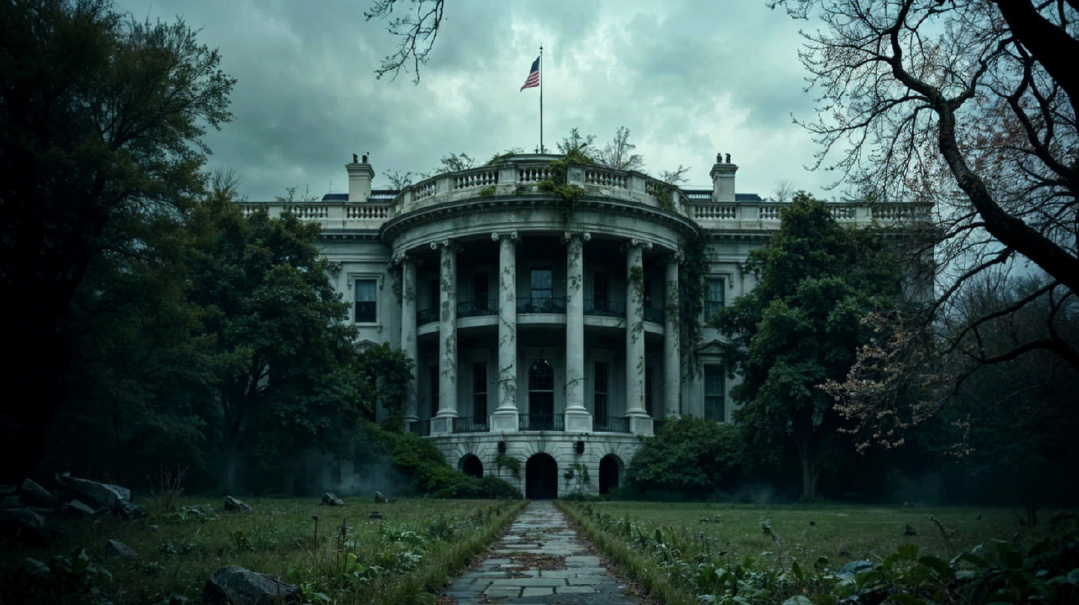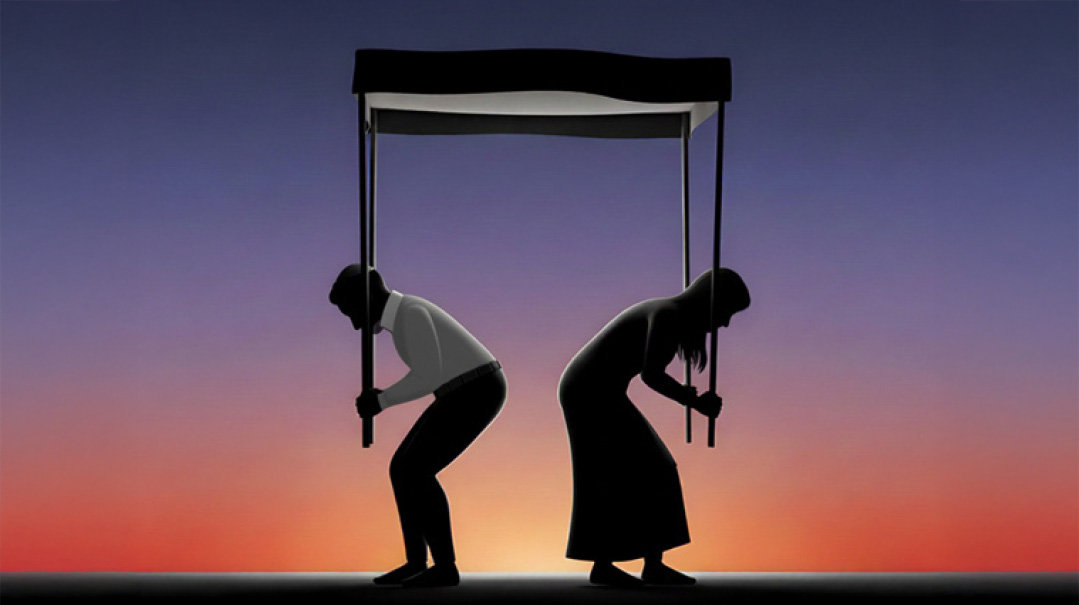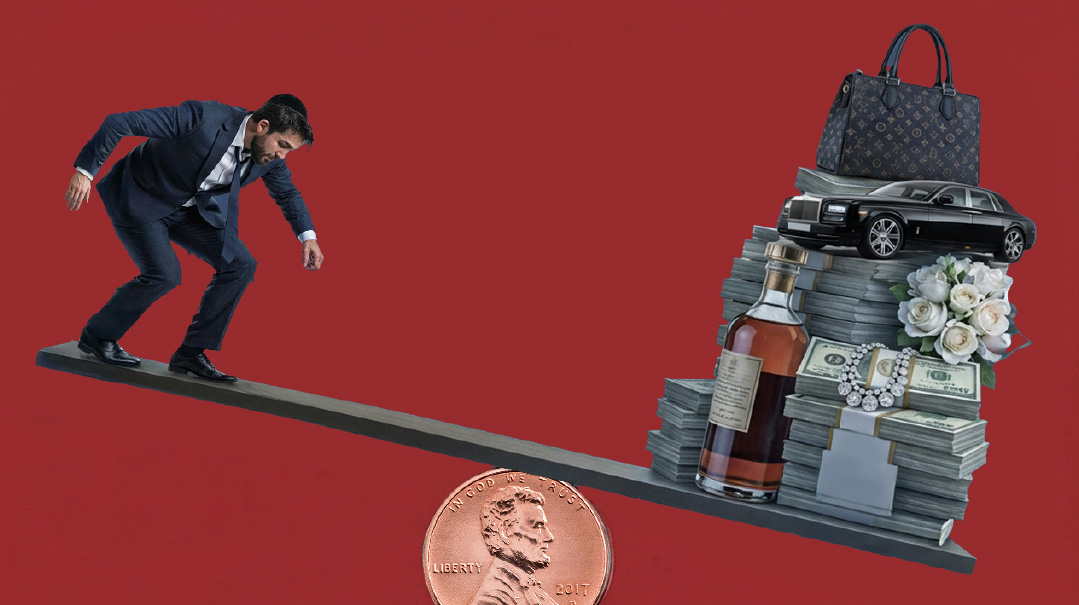Tarnished

When did America become a country where workplaces, friendships, even families get ripped apart by political views?

B
ack when I was an eighth-grader growing up in Brooklyn, my entire class looked forward to our big graduation trip to Washington, D.C. And it wasn’t just because of the excitement of a sleepover experience, or the fact that we’d get to miss class. We really felt a genuine thrill to be in America’s capital city.
It was part of an overall pattern of admiration for and affiliation with the values and accomplishments of our country. Back in second grade, one valiantly patriotic teacher had us recite the Pledge of Allegiance every day. For a fourth-grade project, we each created a brochure inviting tourists to a chosen state, extolling the state flower, nickname, and natural resources. During our elementary school careers, we reenacted the midnight ride of Paul Revere, warbled the high notes of the Star Spangled Banner, and repeated the stirring phrases of Lincoln’s Gettysburg Address until we knew them by heart.
Maybe it was because we were young and innocent, but on that trip to Washington we saw real grandeur in the classic white marble buildings. America made us proud. We were inspired by the founders who’d acknowledged the flaws of their era and sacrificed to build something better. We felt fortunate to live in a country that opened doors and opportunities to so many, with a fundamental tolerance and decency. Most of all, we were grateful to live under a government that allowed us to thrive as frum Jews.
OFcourse, as I got older, I realized that too many of those noble presidents whose portraits lined our textbooks had ugly backstories our teachers didn’t share. Some harbored tendencies to violence, alcohol, or immorality. Less consequential but still disappointing, some of that elegant prose that so inspired us was actually produced by paid speechwriters. Much worse: The doors that swung open to welcome Holocaust survivors had been held tightly shut during the years of slaughter. The gleaming picture wasn’t quite as flawless as originally painted.
But there was still much to take pride in. Even decades after making my home in Eretz Yisrael, I never made an effort to lose my American accent. It’s no shame to be an American. America isn’t only the country of Coca-Cola and dollar bills; it’s a country that offered a vision of equality and self-determination to the world.
I don’t know if I can put a finger on the exact moment when things changed. I do know that this election has evoked many troubling doubts and questions.
When did America become a place where candidates routinely utilize the ugliest, mud-spattered language to depict their rivals not just as flawed politicians, but as abhorrent human beings?
When did it become a country where workplaces, friendships, even families get ripped apart by political views fiercer than any religious fervor?
Was it always commonplace — virtuous, even — for America’s citizens to view their country with disdain and malice, writing if off as a rotten enterprise that must be reconstructed from the very roots? Was it always standard practice for Americans to cheer and laugh approvingly when their preferred candidate threatens violence?
And as a frum Jew — was it always like this, that you have to shield your children from the public addresses of the country’s most significant political candidates? There are no soaring speeches these days; instead there are nasty sound bites of blame, shame, and gotchas. If you care about your children’s souls and are selective in the language you expose them (and yourself) to, then you can’t even allow them to listen to the highest-ranking candidates answering a policy question.
Speaking to family and friends in the weeks before the election, I heard different variations of the same sentiment: I’m voting against a candidate rather than for a candidate. Our prime motivation to cast a ballot this November is not the pursuit of a promise, but the aversion of a threat.
That doesn’t mean we’ve stopped appreciating America. The right to select a candidate who will protect your interests is a privilege and a gift. Even if said candidate does not win, a country intentionally constructed with layers upon layers of democratic representatives and barriers to absolute power is a rare station in our nation’s wanderings. During our long history, we’ve experienced very few opportunities for representation on this scale, and very few host countries that afforded us such robust legal and religious rights. Whatever the outcome of any specific election, our free choice at America’s ballot boxes is a historical wonder we shouldn’t take for granted.
But along with that appreciation, I keep hearing concern. Some of the people I speak to worry how our shtadlanim will find worthy, capable allies when so much power has gravitated toward the poles at both extremes. Others can’t decide whether to invest money in home renovations when the ground beneath those homes feels more than a bit unsteady. Some wonder: If these are the best candidates the country could find, what does that say about the country? Tentatively, not quite believing their own voices, they question whether America’s golden haven for Jews is starting to tarnish around the edges.
A few years ago, during a family trip to the States, I took my Israeli born-and-bred kids on a day trip to D.C. I watched their faces as they took in the sites and waited to see that childlike awe reflected in their eyes.
The White House was undergoing renovations that week, and wasn’t open to visitors. So maybe it’s unfair to judge. The Capitol, as always, was pristine and stately. The democratically elected representatives of the American people, with their tailored suits and leather attaché cases, were actually able to go about the process of legislation without yelling or being escorted out of the room by police, something my Sabra children found refreshing, if a bit bland.
As they munched their snacks with the Washington Monument in the background, though, it was pretty obvious that they were considerably less thrilled than I had been, back as a visiting eighth-grader. Maybe I hadn’t inspired them with the proper reverence for the scrappy band of rebels who defied not just the world’s superpower, but the entire concept of monarchy. Maybe I should have instilled more gratitude for the country that provided a refuge for their great-grandparents when they needed it most. Or maybe they’d imbibed an overall sense that the old playbook had been tossed away, and America was retreating from its position as ideological leader of the free world.
These past few months, as I followed America’s rollercoaster of an election, I envisioned those landmarks — the solid yet graceful rotunda, the pencil-shaped Monument poking the pale winter sky — and wondered if today’s generation sees them the same way. For most of us who grew up during a certain era in America, the White House’s white marble pillars or the opening chords of the national anthem evoke a certain pulsing vision for humanity. It was a vision passionate enough to release thirteen colonies from British shackles, articulate a mandate of liberty for all, and fuel an endeavor to spread that freedom to the world.
These days, we see a creeping tarnish marring the patriotic landscape. Is it the inevitable experience of our now grown-up eyes seeing the flaws that had been there all along, or is there something new and foreboding in that tinge of decay?
(Originally featured in Mishpacha, Issue 1035)
Oops! We could not locate your form.







